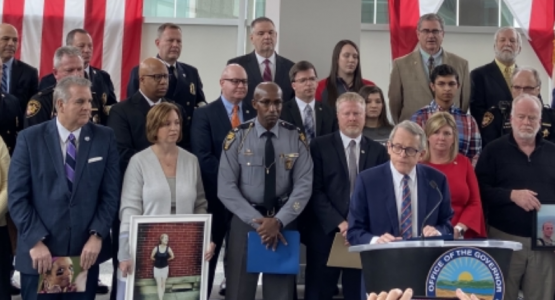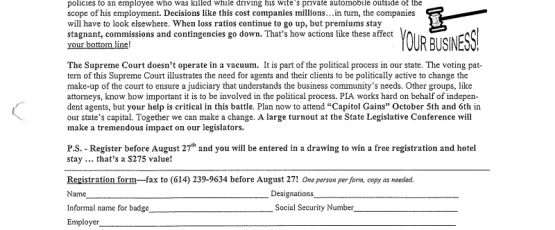COLUMBUS, Ohio (AP) — Ohio Gov. Mike DeWine is renewing his effort to make distracted driving reason enough for police to pull someone over.
DeWine’s proposal would address such activities as writing, sending or looking at texts, watching or recording photos or videos, or livestreaming while handling an electronic device, among other activities. DeWine said Monday he’s including the measure in his executive budget proposal. The governor backed similar legislation last year that failed to become law.
The proposal would make handling an electronic device a primary offense, meaning police wouldn’t need another reason first — such as speeding — to pull drivers over. Such a violation is currently a secondary offense for drivers over the age of 18. Similar to a seatbelt violation, a police officer must have another reason to stop a vehicle before issuing a citation unless the driver is under 18. The potential fine is $150. Ohio is one of just four states without a distracted-driving primary enforcement law for everyone.
“Ohio’s current laws don’t go far enough to change the culture around distracted driving, and people are dying because of it,” the Republican governor said. “Distracted driving is a choice that must be as culturally unacceptable as drunk driving is today, and strengthening our current laws will lead to more responsible driving.”
If a violation leads to serious injury or death, the proposed penalties would be similar to those for drunken driving, increasing with subsequent violations and potentially leading to license suspensions. Traffic deaths on Ohio roads have increased in six of the last seven years, according to the State Highway Patrol The Ohio State Highway Patrol reports that 2020 appears to have been the deadliest year in more than a decade with 1,236 people killed in traffic crashes. There have been more than 100,000 crashes attributed to distracted driving, with more than 53,000 injuries, in Ohio over the last six years, the patrol said.
Exemptions would include using a phone to place an emergency call or using hands-free functions to talk on the phone or dictate texts. If the proposal passes, there would be a six-month period in which police could issue only warnings.






